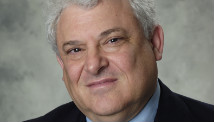The White House and a bipartisan group of senators next week plan to begin their efforts to push for comprehensive immigration reform.
President Barack Obama will make an announcement on immigration during a Tuesday trip to Las Vegas, Nevada, the White House said on Friday. The Senate group is expected make their plans public around the same time, the Associated Press reported.
See Also: Where Do Labor Unions Stand on Immigration?
For Obama, immigration reform is a campaign promise that has remained unfulfilled from his first White House run in 2008. During his 2012 re-election campaign, the president vowed to renew his effort to overhaul the nation's immigration system. It has long been expected that Obama would roll out his plans shortly after his inauguration.
The president's trip to Las Vegas is designed "to redouble the administration's efforts to work with Congress to fix the broken immigration system this year," the White House said.
Ever since November's election, in which Latino voters turned out in record numbers, Republicans and Democrats have expressed a desire to work on immigration reform. Obama has long supported a bill that would make many of the nation's 11 million undocumented immigrants without criminal records eligible to apply for an earned pathway to citizenship, which includes paying fines and learning English.
Charles Dharapak/AP Photo
But the debate over a pathway to citizenship is expected to be contentious. Other flashpoints in an immigration reform push could include a guest-worker program, workplace enforcement efforts, border security, and immigration backlogs.
In a statement, the White House said that "any legislation must include a path to earned citizenship."
Ahead of his immigration push next week, Obama met today with a group of lawmakers from the Congressional Hispanic Caucus (CHC), including chairman Rubén Hinojosa (D-Texas) , Sen. Bob Menendez (D-N.J.), Democratic Caucus Chair Rep. Xavier Becerra (D-Calif.), and CHC Immigration Task Force Chair Rep. Luis Gutierrez (D-Ill.), the latter's office said. CHC members are expected to play a pivotal role in the debate.
"The president is the quarterback and he will direct the team, call the play, and be pivotal if we succeed. I am very optimistic based on conversations with Republicans in the House and Senate that we will do more than just talk about the immigration issue this year," Gutierrez said in a statement following the CHC meeting with Obama. "The president putting his full weight and attention behind getting a bill signed into law is tremendously helpful. We need the president and the American people all putting pressure on the Congress to act because nothing happens in the Capitol without people pushing from the outside."
A bipartisan group of eight senators, which includes Menendez, has also begun talks on drafting an immigration bill and will play an integral part in the process of passing a bill through Congress. Sen. Marco Rubio (R-Fla.), who has been participating in talks with others senators, has also unveiled his own outline for an immigration proposal.
The group of senators have reportedly eyed Friday as the date when they'll unveil their separate proposal, according to the Washington Post.












